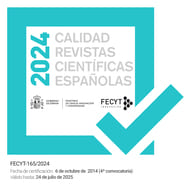Community heritage activation and sustainable tourism: the case of Etzatlán, Jalisco
DOI:
https://doi.org/10.25145/j.pasos.2022.20.045Keywords:
Tourism, Biocultural heritage, Sustainable communitiesAbstract
Tourism has become a possibility for many small Mexican municipalities to keep their communities alive and offer new job opportunities to their population, in the face of changing productive systems and lifestyles. In the case of Etzatlán, Jalisco, this possibility has been explored by different administrations, without success so far. In 2019, a participatory project was proposed to the local authorities to generate a model of sustainable and supportive tourism. This model was to meet two criteria: the role of the tourist in the decision-making process and the mechanisms to redistribute the possible earnings generated by their arrival. From an ethnographic map of potential biocultural heritages, proposals were forwarded to the local community for them to consider. In this paper we present the methodology and the main results of these strategics in local government and planning, as well as the restrictions. The article finishes with a reflection on the possibilities of replicating this methodology in other communities and the role that horizontal methodologies could play to greater success with the objectives set by the populations themselves.
Downloads
Publication Facts
Reviewer profiles N/A
Author statements
- Academic society
- PASOS. Revista de Turismo y Patrimonio Cultural
- Publisher
- Instituto Universitario de Investigación Social y Turismo. Universidad de La Laguna (España) - Instituto Universitario da Maia ISMAI (Portugal)
References
Corona Berkin, Sarah (2019) La producción horizontal del conocimiento. Guadalajara: UDG, UCR, UNSAM y FLACSO.
Gómez Nieves, S. y García Pérez, D. (2015) Diagnóstico de competitividad y sustentabilidad para los denominados Pueblos Mágicos de Jalisco. Volumen I. Tequila. Guadalajara: SECTUR, UDG y Gobierno de Jalisco.
Gómez Nieves, S., Rodríguez Bocanegra, K.M. (2015) Diagnósticos de Competitividad y Sustentabilidad de los «Pueblos Mágicos» de Jalisco. Volumen II. Mazamitla. Guadalajara: SECTUR, UDG y Gobierno de Jalisco.
Gómez Nieves, S., Castillo López, J.L. (2015) Diagnósticos de Competitividad y Sustentabilidad
de los «Pueblos Mágicos» de Jalisco. Volumen IV. Tapalpa. Guadalajara: SECTUR, UDG y Gobierno de Jalisco.
Hernández López, José de Jesús (2009) “Tequila: centro mágico, pueblo tradicional. ¿Patrimonialización o privatización?” Andamios vol.6 (no.12). México (41-67).
INEGI (Ed.) (2020) Turismo. Información general. Recuperado en https://www.inegi.org.mx/temas/turismo/.
Navas Ríos, María Eugenia (2019) Revisión sistemática del concepto turismo comunitario. Saber, Ciencia y Libertad Vol. 14 (No. 2). 44-162
Prats, Llorenc (1997) Antropología y Patrimonio. Barcelona: Ariel
Prats, Llorenç (2005) “Concepto y gestión del patrimonio local”. Cuadernos de Antropología Social, no. 21. Buenos Aires: Universidad de Buenos Aires. 17-35
Rainforest Alliance, SNV, Counterpart. (2013). Guia de Buenas Prácticas de Turismo Sostenible para Comunidades de Latinoamérica. Una Guía para iniciativas turísitcas comunitarias. USAID (https://www.rainforest-alliance.org/lang/es/publications).
Sánchez Domínguez-Guilarte, María de la Concepción (2015) La controversia Wirikuta: hacia un nuevo modelo de patrimonio (tesis de doctorado). Universidad de Salamanca: Salamanca.
Sánchez Huerta, David (2018) Análisis FODA-DAFO. Recuperado en https://foda-dafo.com.
SECTUR (Ed.) (2019) Compendio estadístico por estado. Recuperado de https://www.datatur.sectur.gob.mx/SitePages/CompendioEstadistico.aspx
https://www.datatur.sectur.gob.mx/ITxEF/ITxEF_JAL.aspx.
SECTUR (2001) Pueblos Mágicos. Reglas de Operación. México: Secretaría de Turismo.
SEMARNAP (2000) Medio ambiente y turismo: logros y retos para el desarrollo sustentable 1995-2000. México: Instituto Nacional de Ecología- SEMARNAP
Comisión Europea (2020) Manual. Gestión del Ciclo de Proyectos. Bruselas: EuropeAid
Comisión Europea (2020) Manual. ROM 2020. Bruselas: EuropeAid
Downloads
Published
How to Cite
Issue
Section
License
Copyright (c) 2021 María de la Concepción Sánchez

This work is licensed under a Creative Commons Attribution-NonCommercial-NoDerivatives 4.0 International License.
I confirm that the work is original (of my/our authorship), and that it will not be submitted to other journals or publications until the final resolution of the review process in PASOS, RTPC.
I authorize the publication of my work by PASOS, PSTN of free and open access in any of the formats that I deem appropriate, for an indefinite period of time and as a non-remunerated collaboration.
Likewise, the author(s) understands that the published work may be linked or deposited on any server or included in other publications (republication), provided that the new place and/or new edition references the original publication and acknowledges the authorship and copyright ownership of PASOS RTPC publications.
Authors understand that a plagiarism-self-plagiarism check will be performed, and the article may be removed at any time from the editorial flow.










